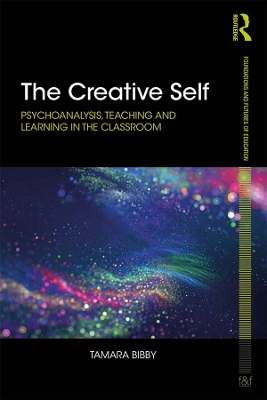Foundations and Futures of Education
3 total works
The Creative Self engages with the work of the psychoanalyst D.W. Winnicott to develop alternative ways of thinking about key issues at the heart of pedagogy; specifically pedagogic relationships, creativity, defiance and compliance. These issues underpin the desires and defences of professionals located in educational institutions, such as the desire to know what is best, to know how to reach all learners, normalised expectations of behaviours and outcomes, and sometimes challenging engagements with students and the curriculum.
Each chapter provides both a theoretical focus and illustrative demonstrations of the ways in which Winnicott’s theories may be relocated and used productively as tools for professional and academic reflexivity. By building extensively on Winnicott’s understanding of the ways in which relationships facilitate (or hinder) the development of the self, this book extends his clinical focus on parental and analytical relationships to think about the ways in which the pedagogic relationship can provide an environment in which people may (or may fail to) develop as learners.
This approach provides powerful ways of thinking about pedagogy and pedagogic relationships that stand apart from the cognitive and rationalist tradition. This focus can be used constructively to support people working in educational settings to re-establish a sense of personal and professional autonomy in an environment recently typified by compliance. The Creative Self is an engaging and innovative read appealing to postgraduate students, teachers, researchers and academics with a desire for a new analytic lens through which to explore the educational experiences of both learners and teachers in schools, colleges and universities.
In classrooms and lectures we learn not only about academic topics but also about ourselves, our peers and how people and ideas interact. Education - An Impossible Profession extends the ways in which we might think about these processes by offering a refreshing reconsideration of key educational experiences including those of:
being judged and assessed, both formally and informallyadapting to different groups for different purposesstruggling to think under pressurelearning to recognise and adapt to the expectations of others.This book brings psychoanalysis to new audiences, graphically illustrating its importance to understandings of teaching, learning and classrooms. Drawing on the author's original research, it considers the classroom context, including policy demands and professional pressures, and the complexity of peer and pedagogic relationships and interactions asking how these might be being experienced and what implications such experiences might have for learners and teachers.
The discussions will be of interest not only to teachers, leading-learners and teacher-educators, but also to individuals interested in education policy, professional practice and theories of education.

